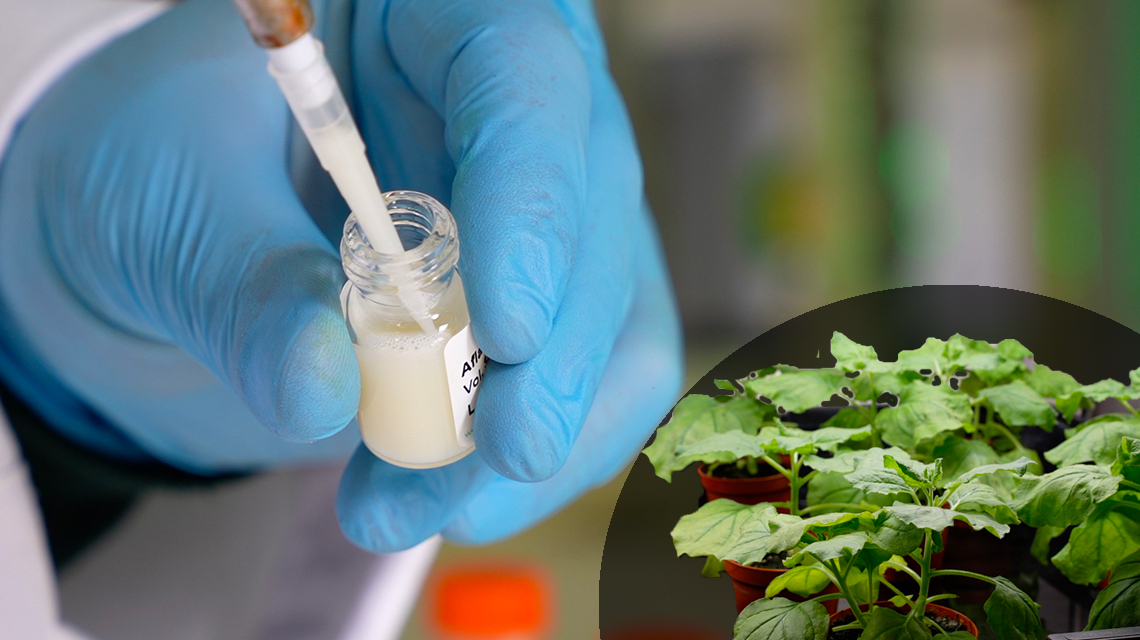ENEA has developed a diagnostic kit per dairy farms e analysis laboratories, able to detect so quick, effective it’s at low cost the presence ofaflatossina M1 In the raw milk, a substance considered carcinogenic to humans that comes from animals fed with contaminated feed. The results of the research carried out in collaboration with the University of Turin have been published in the scientific journal Toxins. Due to the harmful effects on human and animal health, the European Union has set a maximum concentration of aflatoxin M1 of 50 nanograms/litre in raw milk, heat-treated milk and milk intended for the production of cheese. And it has further lowered this threshold value in foods intended for infants and children (25 ng/l), who are among the major consumers of this food.
The analysis technique developed by ENEA researchers involves, for the first time, the use of antibodies monoclonal products from one plant of the same genus as tobacco (Nicotiana benthamiana), to ‘intercept’ the toxins present in milk even at very low concentrations – well below the limits set by law – as demonstrated by the experiments carried out on samples of raw milk containing different concentrations of aflatoxin M1 (25, 50 and 75 nanograms/L). “This is the ‘green’ version of ELISA, one of the best and most widespread rapid screening methods for the detection of toxins in food and animal feed, which allows the accurate, rapid and low-cost analysis of a large number of samples”, explains Marcello Catellani of the ENEA Laboratory of Bioproducts and Bioprocesses.
For the production of the antibodies, the researchers made use of an alternative and economic production system offered by the Plant Molecular Farming (PMF), a system that uses plants to produce complex molecules such as antibodies. “It is a biotechnological approach that can ‘free’ the production of antibodies from the classic and more expensive systems based on animal cell cultures, which require dedicated structures and environments, specific reagents and tools for their growth in sterile conditions, such as example bioreactors and incubators”, adds Catellani.
The PMF allows you to operate in non-sterile conditions (greenhouse, water, light, soil) with costs reduced to a minimum. For this work, the agroinfiltration technique was used which involves the use of a particular bacterium called Agrobacterium tumefaciens which carries the genetic information of interest in the plant tissues of the plant Nicotiana benthamiana. “This process results advantageous for speed and yield: it takes only 1-2 days for the growth of the agrobacteria, which have the task of conveying the genetic information in the plant, and after about a week it is possible to collect the leaves from which extract up to 1.6 g/kg of antibodies. Therefore, the scale-up of this production is immediate, easily modulated and inexpensive, when compared with in vitro cell cultures, because it simply requires an expansion of the cultivation space dedicated to the plants”, underlines Cristina Capodicasa of the ENEA Biotechnology Laboratory.
Aflatoxins are mycotoxins produced by fungi belonging to the genus of Aspergilli which usually develop when foodstuffs are stored at temperatures between 25 and 32°C and with ambient humidity rates of over 80 percent. You can’t see them with the naked eye, they have no taste and, above all, they show ahigh stability during heat treatments such as, for example, the pasteurization of milk.
